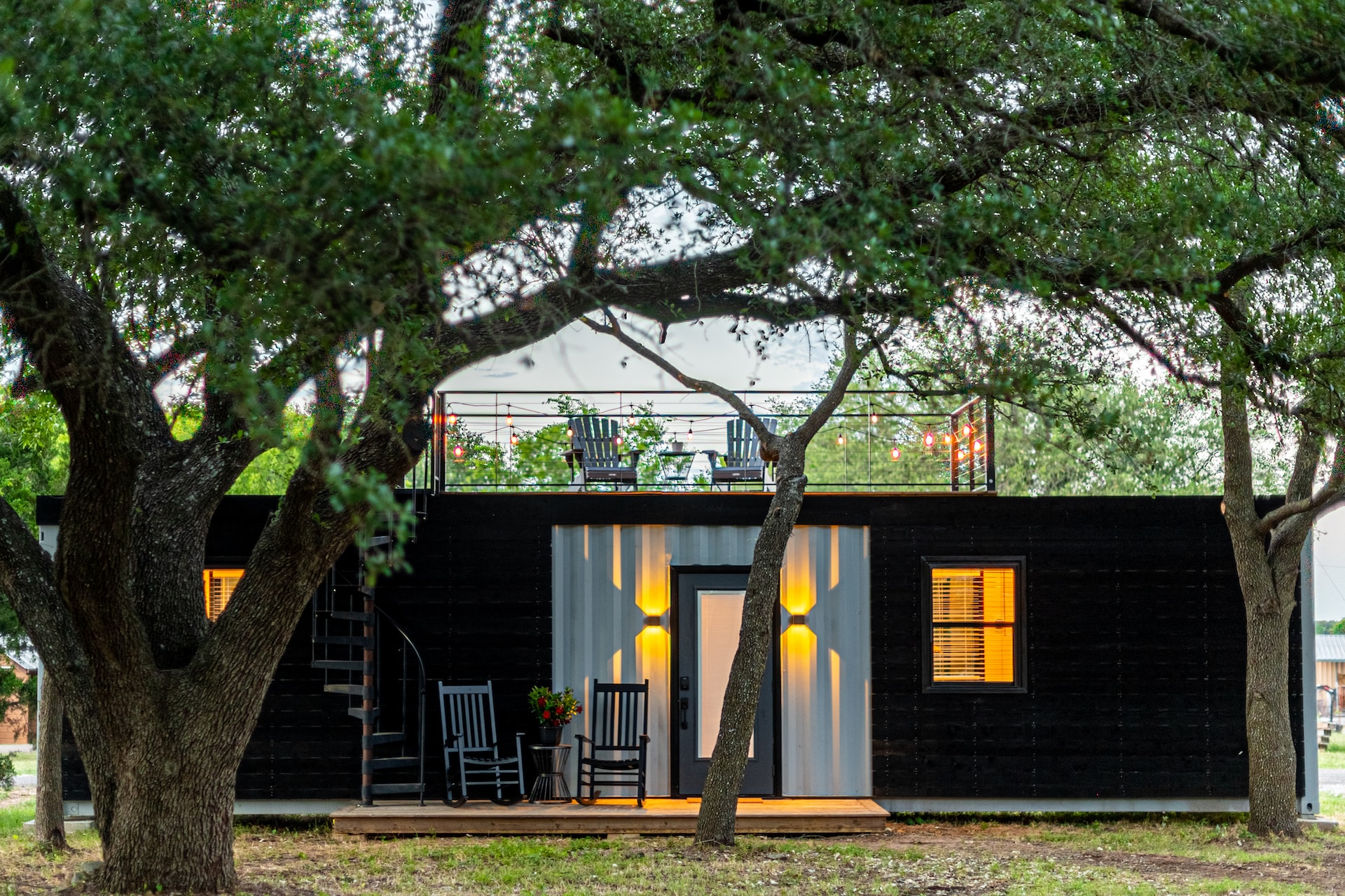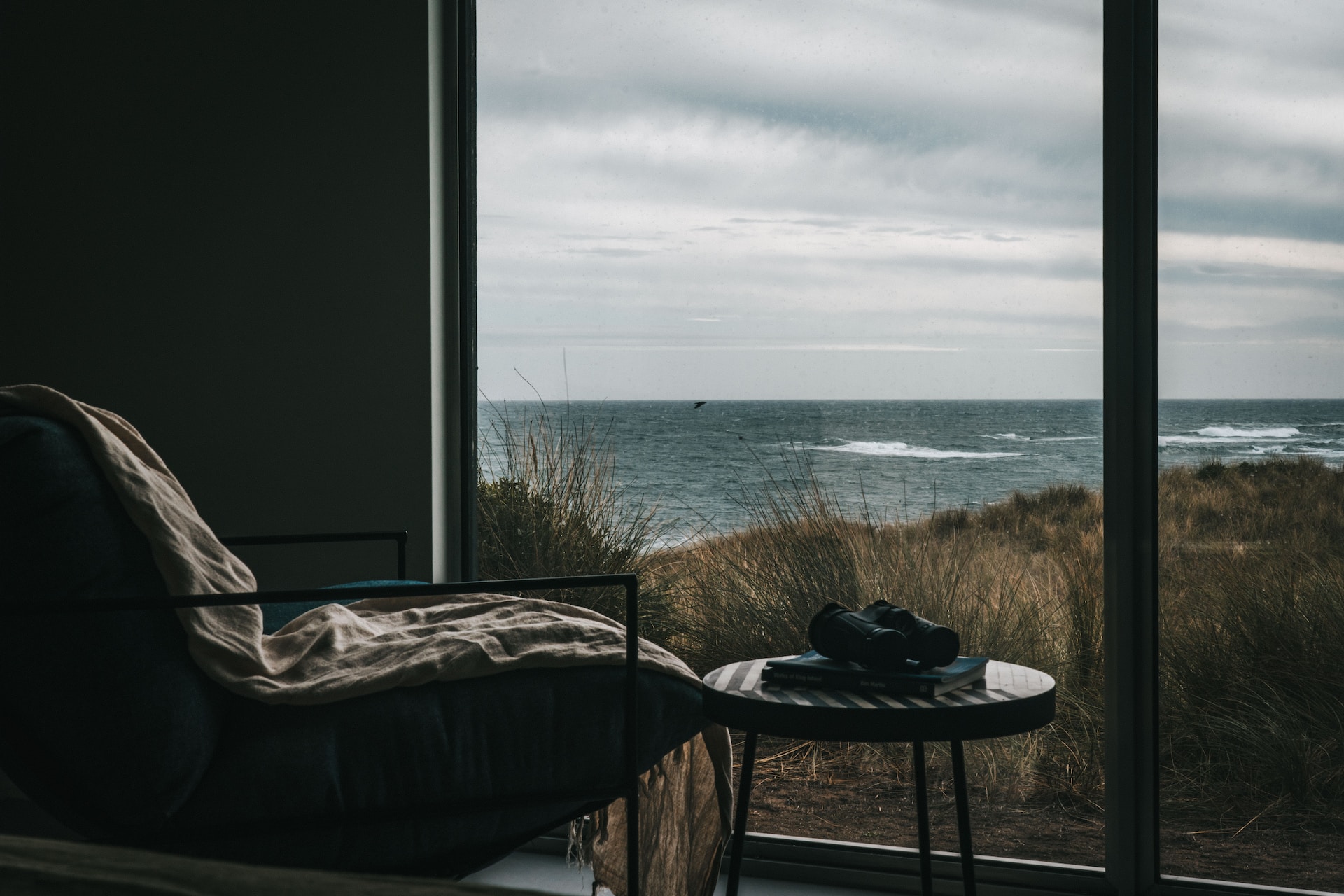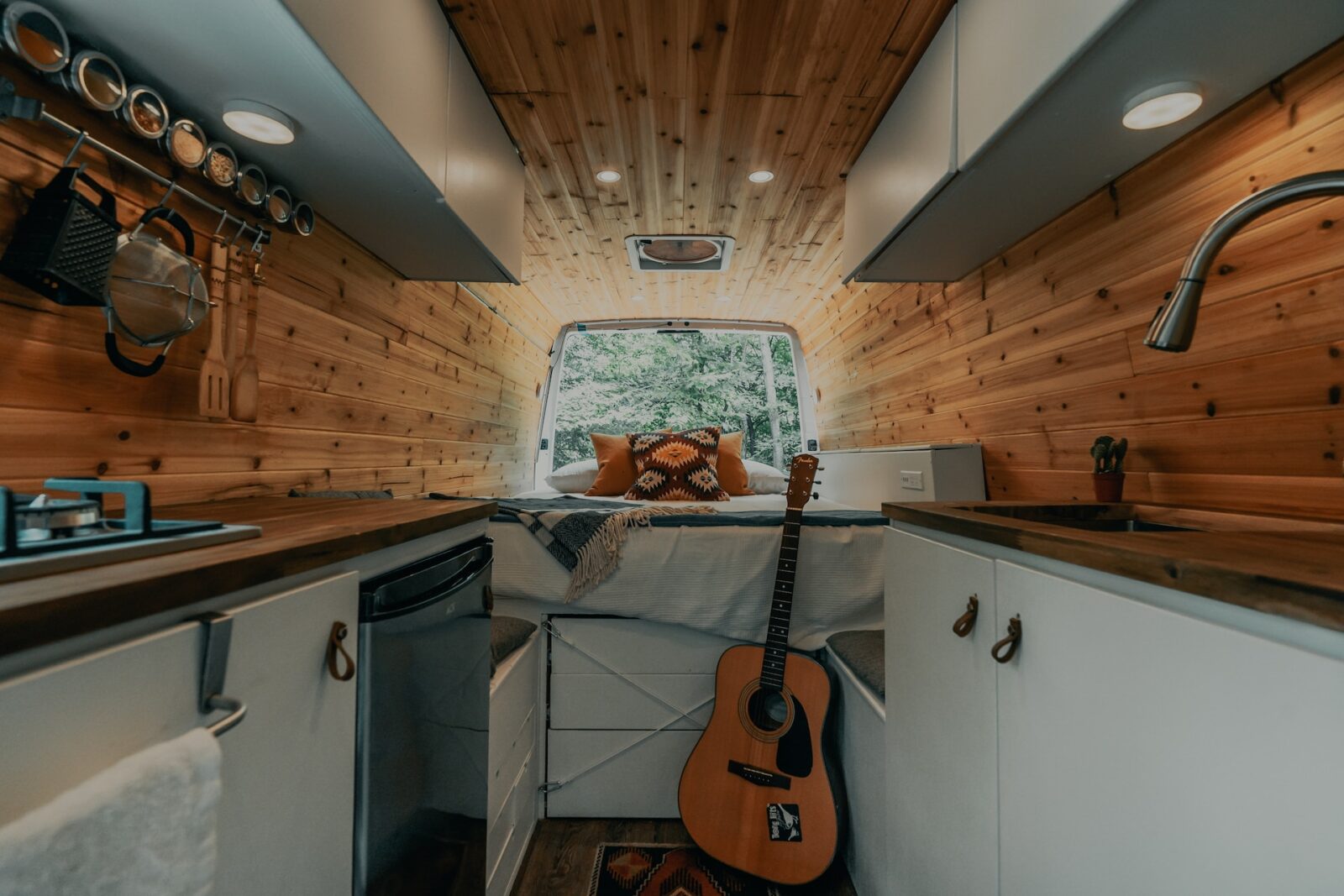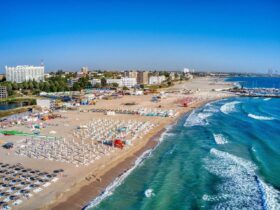The concept of off-grid living has captured the imagination of many seeking a more sustainable, self-sufficient, and harmonious way of life. With the pressures of modern society, the desire to escape the rat race and reconnect with nature has never been more appealing. This comprehensive guide to off-grid living essentials will equip you with the knowledge and tools needed to create a harmonious and sustainable lifestyle, free from the constraints of traditional societal norms. From finding the perfect location to harnessing renewable energy sources, we’ll cover all the key aspects of off-grid living to help you embark on your journey toward independence and self-reliance.
The Philosophy of Off-Grid Living
Off-grid living is rooted in the desire for a simpler, more sustainable, and self-reliant way of life. This lifestyle choice often involves disconnecting from public utilities and infrastructure to rely on alternative energy sources, water sources, and waste management systems. Off-grid living prioritizes personal freedom, independence, and the reduction of one’s ecological footprint. By cultivating a deep connection with nature and adopting a minimalist mindset, off-gridders strive to live in harmony with the environment and reduce their dependence on non-renewable resources. Key principles of off-grid living include:
- Self-sufficiency: Generating your own energy, food, and water to reduce reliance on external sources.
- Sustainability: Making choices that minimize your ecological footprint and promote a harmonious relationship with the environment.
- Minimalism: Embracing a simpler, clutter-free lifestyle focused on quality over quantity.
- Resilience: Developing the skills and knowledge necessary to adapt and thrive in a changing world.
Choosing the Perfect Location
The foundation of a successful off-grid lifestyle is selecting the ideal location for your homestead. Here are some factors to consider when choosing the perfect spot:
- Climate: Choose a region with a climate suitable for your preferred activities, such as gardening or solar energy generation. Consider factors like temperature, rainfall, and sunlight hours.
- Land: Look for land with ample space for building, gardening, and renewable energy infrastructure. Consider soil quality, water availability, and potential for natural resources like timber.
- Accessibility: While off-grid living is about isolation, consider access to nearby towns for supplies, medical services, and social connections. Evaluate road conditions and transportation options.
- Legalities: Research local building codes, zoning regulations, and land-use restrictions to ensure your off-grid plans align with local laws.
- Safety: Evaluate potential risks such as natural disasters, extreme weather, or wildlife hazards.


Harnessing Renewable Energy Sources
A key aspect of off-grid living is generating your own power through renewable energy sources. Here are some options to consider:
- Solar Power: Solar panels are the most popular choice for off-grid energy generation. They harness sunlight and convert it into electricity, providing a clean and sustainable energy source. Consider factors like panel efficiency, battery storage, and installation costs.
- Wind Power: Wind turbines can be a viable energy source in areas with consistent wind patterns. Research wind speeds, turbine efficiency, and local regulations before investing in a wind power system.
- Hydro Power: If your property has access to a flowing water source, micro-hydro systems can generate electricity through the movement of water. Investigate water flow, system efficiency, and environmental impact before opting for hydro power.
- Biogas: Biogas systems convert organic waste, such as livestock manure or food scraps, into methane gas for cooking, heating, and electricity generation. Evaluate the availability of organic waste materials, system installation costs, and maintenance requirements before choosing biogas.
Water Management and Waste Disposal
Effective water management and waste disposal systems are crucial for off-grid living. Consider these options to ensure a sustainable and eco-friendly lifestyle:
- Water Sources: Identify and secure a reliable water source for your off-grid property, such as a well, spring, or rainwater collection system. Assess water quality, accessibility, and legal rights to water usage.
- Water Purification: Install a water purification system to ensure safe drinking water. Options include filtration, ultraviolet purification, and chemical treatments.
- Greywater Recycling: Reuse greywater from sinks, showers, and washing machines for irrigation or toilet flushing to conserve water resources. Implement a greywater treatment system to filter and sanitize the water before reuse.
- Composting Toilets: Replace traditional septic systems with composting toilets to minimize water usage and convert human waste into nutrient-rich compost for gardening.
- Waste Management: Implement recycling and composting systems to minimize landfill waste. Consider partnering with local waste management facilities for the responsible disposal of non-recyclable waste.
Growing Your Own Food
Cultivating a self-sufficient food supply is an integral part of off-grid living. Consider these strategies to grow and preserve your own food:
- Gardening: Design and maintain a vegetable garden, incorporating crop rotation, companion planting, and organic pest control techniques to optimize yield and minimize environmental impact.
- Permaculture: Embrace permaculture principles to create a sustainable, self-sufficient ecosystem that mimics natural processes and provides food, shelter, and energy.
- Livestock: Raise animals for meat, dairy, eggs, and other resources. Consider space requirements, feeding, and animal welfare when selecting livestock.
- Food Preservation: Learn techniques for preserving food, such as canning, freezing, and dehydrating, to extend shelf life and reduce food waste.
- Seed Saving: Save and exchange seeds to promote biodiversity, reduce dependence on commercial seed companies, and maintain a sustainable food supply.
Off-grid living offers a unique opportunity to embrace a harmonious and sustainable lifestyle, free from the constraints of modern society. By carefully selecting the perfect location, harnessing renewable energy sources, managing water and waste responsibly, and cultivating a self-sufficient food supply, you can create a fulfilling and environmentally responsible way of life. With the right planning, knowledge, and dedication, off-grid living can provide personal freedom, independence, and a deep connection with nature that fosters a more meaningful and purposeful existence. So, take the first step towards creating your harmonious and sustainable off-grid lifestyle and embark on a journey that will transform your life for the better.


Expert Opinions and Insights on Off-Grid Living
To provide a well-rounded perspective on off-grid living, we’ve gathered insights from industry professionals and experienced off-gridders who have navigated the transition to a more sustainable lifestyle.
- Jenna Spesard, who documents her off-grid tiny house journey on her blog “Tiny House Giant Journey,” highlights the value of prioritizing your needs: “Think about what you truly need in your daily life and design your off-grid system around those necessities. It’s also essential to learn about your local climate and resources before making the leap.” Source: Tiny House Giant Journey.
- Nick Fouch and Esther Emery, the creators of the “Fouch-o-matic Off Grid” YouTube channel, stress the importance of realistic expectations: “Off-grid living can be very rewarding, but it’s not without its challenges. Set realistic expectations and be prepared to adapt as needed.” Source: Fouch-o-matic Off Grid YouTube Channel.
- LaMar Alexander, an off-grid homesteader and author of “Simple Solar Homesteading,” advises on the importance of location and legalities: “Choose a location where you can legally live off-grid and where the climate is suitable for your lifestyle. It’s also crucial to research local regulations and building codes before making any significant investments.” Source: Simple Solar Homesteading.
- Teri Page, creator of the “Homestead Honey” blog, shares her insights on community and networking: “Connecting with other off-gridders, both locally and online, can provide invaluable support, resources, and learning opportunities.” Source: Homestead Honey.
In-Depth Explanations of Off-Grid Living Technologies
To help you better understand the essential technologies for off-grid living, we’ve compiled detailed explanations of some common systems, enabling you to make informed decisions and optimize your off-grid experience.
- Solar Panels: Photovoltaic (PV) solar panels convert sunlight into electricity, providing a clean and renewable energy source for off-grid living. There are two main types of solar panels: monocrystalline and polycrystalline. Monocrystalline panels are typically more efficient and expensive, while polycrystalline panels are more budget-friendly but with lower efficiency. When choosing solar panels, consider factors such as energy needs, available space, and budget. Source: EnergySage.
- Wind Turbines: Wind turbines harness the power of wind to generate electricity for off-grid living. There are two primary designs: horizontal-axis wind turbines (HAWTs) and vertical-axis wind turbines (VAWTs). HAWTs are more common and typically more efficient, while VAWTs can function in lower wind speeds and turbulent conditions. When selecting a wind turbine, consider your location’s wind resources, installation costs, and maintenance requirements. Source: U.S. Department of Energy.
- Water Purification Systems: Ensuring a clean and safe water supply is crucial for off-grid living. Several water purification methods include:
- Filtration: Mechanical filters remove impurities and contaminants from water through a physical barrier.
- Ultraviolet (UV) Purification: UV light destroys harmful microorganisms, rendering them harmless.
- Chemical Treatments: Chemicals such as chlorine or iodine can kill pathogens in the water, making it safe to drink.
- Reverse Osmosis: This process forces water through a semipermeable membrane, removing contaminants and impurities. Consider factors such as water source, quality, and energy requirements when choosing a water purification system. Source: Centers for Disease Control and Prevention.
- Greywater Systems: Greywater is household wastewater from sources like sinks, showers, and washing machines. Greywater recycling systems treat and reuse this water for non-potable purposes such as irrigation and toilet flushing, helping to conserve water resources. There are various greywater treatment options, including gravity-based systems, biological filtration, and advanced treatment systems like constructed wetlands. Select a greywater system based on factors like water quality, available space, and local regulations. Source: Greywater Action
By understanding the technical aspects of these off-grid living technologies, you can make more informed decisions and optimize your off-grid lifestyle. Choose systems that align with your needs, budget, and environmental goals to create a harmonious and sustainable off-grid experience.
Recommendations and Reviews of Off-Grid Living Essentials


Choosing the right products and resources for off-grid living can be overwhelming. To make the process easier, we’ve compiled a list of recommended essentials to help you start your off-grid journey.
- Solar Panels: Renogy is a reputable brand offering a range of high-quality solar panels and kits suitable for various budgets and needs. The Renogy 100W 12V Monocrystalline Solar Panel is an excellent option for those looking for a reliable and efficient solar panel. Source: Renogy
- Wind Turbines: Nature Power offers a range of wind turbines designed for off-grid living. The Nature Power 400W Wind Turbine is an easy-to-install option that provides reliable power generation in a compact design. Source: Nature Power
- Water Filters: For portable water filtration, the LifeStraw Personal Water Filter is a popular choice due to its effectiveness and portability. For larger-scale water filtration, the Berkey Water Filter Systems provide excellent water purification for off-grid living. Source: LifeStraw, Source: Berkey Filters
- Greywater Systems: Aqua2use Greywater Systems are a reliable and efficient option for those looking to recycle their household greywater. The Aqua2use GWDD Greywater Diverter System is an easy-to-install solution for irrigation and water conservation. Source: Aqua2use
- Off-Grid Appliances: Unique Appliances offers a selection of off-grid refrigerators, freezers, and ranges specifically designed for off-grid living. Their Unique Classic 24″ Propane Range is an energy-efficient option for off-grid cooking. Source: Unique Appliances
- Books and Resources:
- “Off-Grid Living Free: The Ultimate Guide to Plan, Create, and Live Your New Off-Grid Life” by Johnny MacKay
This comprehensive guide covers everything you need to know about designing and building an off-grid home, including solar power systems, water collection, and waste management.
- “The Encyclopedia of Country Living” by Carla Emery
This extensive resource provides practical advice on various aspects of self-sufficient living, from gardening and preserving food to raising animals and crafting homemade products.
- “Off Grid Solar: A Handbook for Photovoltaics with Lead-Acid or Lithium-Ion Batteries” by Joseph P. O’Connor
This book offers a detailed guide to setting up an off-grid solar power system, covering topics like system sizing, battery selection, and installation.
- “Tiny House Living: Ideas for Building and Living Well in Less Than 400 Square Feet” by Ryan Mitchell
This book explores the benefits of tiny house living and provides design ideas, plans, and advice for building a functional and comfortable tiny home off the grid.
These books and resources offer valuable guidance and knowledge for those looking to embrace off-grid living. By learning from the experiences and expertise of others, you can embark on your off-grid journey with confidence and a solid foundation.
By investing in reliable and high-quality off-grid living essentials, you can create a sustainable and comfortable off-grid lifestyle. Consider these recommendations as a starting point, and remember to research and select products that best meet your specific needs, budget, and preferences.
Citations and References to Strengthen Your Off-Grid Living Knowledge
To further enhance your off-grid living expertise, here are some reliable sources and organizations that offer valuable information and resources on sustainable living practices, alternative energy systems, and more.
- The U.S. Department of Energy: The DOE provides extensive information on renewable energy technologies, energy efficiency, and sustainable living practices. You can find detailed guides on solar power systems, wind energy, and other renewable energy sources.
- The National Renewable Energy Laboratory (NREL): NREL is a leading research institution that focuses on developing innovative renewable energy and energy efficiency technologies. Their website offers a wealth of information on various renewable energy systems, including solar, wind, and geothermal power.
- The American Solar Energy Society (ASES): ASES is a non-profit organization that promotes the use of solar energy and other sustainable technologies. Their website offers resources on solar power, energy efficiency, and green building practices.
- The Off-Grid Living Magazine: This online magazine provides practical advice, tips, and information on various aspects of off-grid living, including alternative energy, homesteading, and self-sufficiency.
- Off-Grid Living YouTube Channels: Several YouTube channels offer valuable insights and experiences from individuals who have embraced off-grid living. Some popular channels include Living Big in a Tiny House, Kirsten Dirksen, and Off Grid with Doug and Stacy.
By exploring these credible sources and organizations, you can gain a deeper understanding of off-grid living and sustainable practices. Continuously learning and staying up-to-date with the latest developments in off-grid technologies and techniques will help you create a more harmonious, self-reliant, and sustainable lifestyle.










Leave a Reply